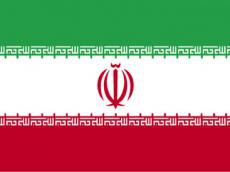|
|
TODAY.AZ / World news
Iranians cannot pay for Indian rice
08 February 2012 [14:41] - TODAY.AZ
 Iranian buyers have defaulted on payment for about 200,000 tons of rice from their top supplier India, exporters and rice millers said on yesterday, as trade between the two countries comes under mounting pressure from a new wave of Western sanctions against Tehran.
Iranian buyers have defaulted on payment for about 200,000 tons of rice from their top supplier India, exporters and rice millers said on yesterday, as trade between the two countries comes under mounting pressure from a new wave of Western sanctions against Tehran.While a sharply weakening rial has made forward purchases costlier, financial sanctions are making it difficult for Iranian traders to continue using an unofficial route involving middlemen based in Dubai to keep paying Indian suppliers.
The defaults, totaling about $144 million, were for shipments under term deals in October and November free-on-board Indian ports, Indian traders said. Most Indian rice exporters allow 90 days credit.
India is Iran’s top rice supplier, accounting for some 70 percent of its annual requirement of 1-1.2 million tons of the grain, mainly the aromatic variety called Basmati.
“It is a serious issue and we do not rule out further payment defaults by Iran,” said Vijay Setia, president of the All India Rice Exporters’ Association. “We have requested the government to step in.”
Setia said India should not send any more rice to Iran on credit, adding the suppliers such as those in Thailand, Vietnam and Pakistan had already stopped doing so.
Sanctions hit food sector
The United States slapped fresh sanctions on Tehran from the start of this year, targeting financial institutions that deal with the central bank, hoping to stem oil revenues and persuade Iran to abandon a suspected nuclear weapons program.
The rice defaults could be the latest sign that sanctions are biting, hampering staple food supplies to Tehran. Grain ships are docked outside ports, traders are not booking fresh cargoes and exports of staples to Iran such as maize are falling.
The rice default is the latest snag in India-Iran trade, which is heavily skewed towards Tehran.
India is Iran’s second-largest buyer of crude and it has struggled to settle payments worth some $11 billion annually after New Delhi scrapped a long-standing mechanism in 2010 under pressure from Washington.
While New Delhi has switched to a payment conduit for its Iranian oil using Turkey’s state-run Halkbank bank, Indian rice exporters have been using a loose, unofficial route involving a network of middlemen based in Dubai. The middlemen receive payments from Iranian importers in rial and pay Indian exporters in U.S. dollars.
But Indian traders said the defaults started after the rial plunged over the past month, making previous purchases costlier for Iranian importers. The cost of transactions also went up for the Dubai middlemen as they use U.S. dollars to pay Indian exporters.
Indian traders said about 20 Iranian companies have failed to clear their dues during the past month.
/Reuters/
URL: http://www.today.az/news/regions/102210.html
 Print version
Print version
Views: 1648
Connect with us. Get latest news and updates.
See Also
- 18 February 2026 [09:00]
Kazakhstan to build CIS’s first green fuel plant - 18 February 2026 [08:00]
Romania leads Europe in next-generation nuclear energy - 17 February 2026 [23:33]
Engineers create balloon telescope to study exoplanet atmospheres - 17 February 2026 [21:23]
Unilever turns to Google Cloud to boost its AI initiatives - 17 February 2026 [20:21]
NASA set for second complete fueling of SLS rocket - 17 February 2026 [19:45]
Volkswagen, Renault, and Stellantis to face court in France - 17 February 2026 [14:55]
Poland backs joining nuclear project amid growing security concerns - 17 February 2026 [12:49]
Trump to 'indirectly' take part in Iran talks - 17 February 2026 [11:02]
ASCO’s “Balak?n” ferry returns to service after major overhaul, sets sail for Kazakhstan - 17 February 2026 [09:00]
Pentagon plans mobile nuclear reactor test
Most Popular
 All dots above the "I" and how Baku knows how to place them
All dots above the "I" and how Baku knows how to place them
 Russia may face fresh sanctions after Navalny poisoning findings
Russia may face fresh sanctions after Navalny poisoning findings
 Belgrade hosts 1st meeting of Strategic Partnership Council between Azerbaijan and Serbia
Belgrade hosts 1st meeting of Strategic Partnership Council between Azerbaijan and Serbia
 President Ilham Aliyev, President of Serbia make press statements
President Ilham Aliyev, President of Serbia make press statements
 Decarbonization and pragmatism: how does Baku act?
Decarbonization and pragmatism: how does Baku act?
 Why Serbia matters to Azerbaijan in fractured Europe?
Why Serbia matters to Azerbaijan in fractured Europe?
 China grants visa-free entry to Canada, UK
China grants visa-free entry to Canada, UK
